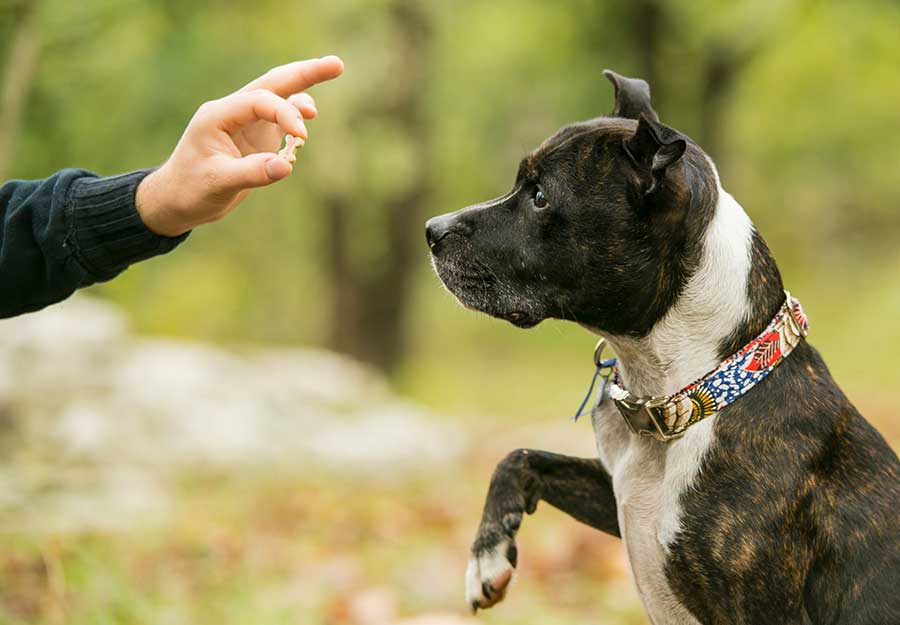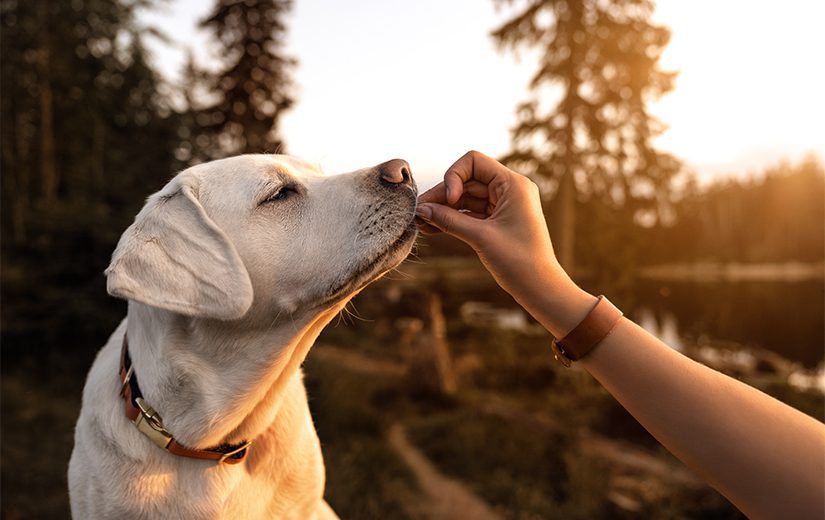A Step-by-Step Approach to Dog Training Success
A Step-by-Step Approach to Dog Training Success
Blog Article
The Ultimate Guide to Canine Training: Change Your Pet dog's Habits
Effective pet dog training is essential for fostering an unified relationship between animals and their proprietors. The complexities of canine habits and the implementation of organized training methods play a crucial function in this process. By comprehending the concepts of positive reinforcement, uniformity, and socialization, pet dog proprietors can browse usual challenges that arise throughout training. This guide not just intends to furnish you with the needed tools to change your pet dog's behavior but additionally invites you to check out how these foundational concepts can cause a much deeper link with your family pet. What might be the primary step in this transformative journey?
Recognizing Dog Behavior
Comprehending pet actions is vital for effective training and an unified partnership in between canines and their proprietors. A canine's habits is affected by a combination of genetics, atmosphere, and experiences. Dog training. Identifying these factors enables owners to tailor their training approaches to meet the private requirements of their family pets
Pets communicate largely through body language, vocalizations, and faces. A wagging tail can suggest exhilaration or happiness, while a tucked tail may signal fear or entry. Observing these hints enables owners to respond appropriately, enhancing favorable behaviors and addressing unfavorable ones efficiently.
Furthermore, comprehending the social framework of dogs can offer understandings into their behavior. Pets are pack animals, and they prosper in a structured environment. Developing constant rules and clear limits can stop complication and advertise a sense of safety and security.
Additionally, recognizing the natural reactions of pets, such as the desire to dig or chase after, is important. These reactions can be redirected via appropriate electrical outlets, such as play or workout. By adequately understanding these behavioral aspects, proprietors can cultivate a positive training experience, eventually leading to a well-adjusted and obedient canine companion.
Important Training Strategies
Efficient pet dog training counts on a variety of necessary techniques that can significantly enhance the understanding process for both the owner and the canine. One fundamental strategy is favorable reinforcement, which entails fulfilling desirable actions with treats, appreciation, or playtime. This approach motivates canines to repeat the actions that cause favorable end results, promoting a trusting connection between the pet and owner.
One more secret technique is consistency in expectations and commands. Using the exact same spoken signs and hand signals assists the canine understand what is needed, minimizing confusion and advertising quicker learning. Furthermore, establishing clear borders and regulations is essential for effective interaction.
Socializing is also an important component of training. Exposing pet dogs to various atmospheres, people, and other animals aids them create proper social abilities and decreases stress and anxiety in strange scenarios.
Lastly, perseverance and timing are vital. Training sessions should be short yet frequent, making certain that the dog remains engaged and receptive. By using these vital methods, owners can produce a favorable and structured training experience that promotes etiquette and reinforces the bond with their canine friends.
Developing an Educating Arrange
Just how can a well-structured training schedule boost a pet dog's knowing experience? A training schedule provides consistency, making certain that pets obtain routine, concentrated direction. This predictability aids canines recognize what is expected of them, enhancing their discovering and allowing for far better retention of commands and habits.
When producing a training timetable, it is vital to take into consideration the canine's age, type, and individual character. Youthful young puppies might benefit from shorter, more frequent sessions, while grown-up dogs might love longer, less constant training durations. Integrating a selection of tasks can also maintain the sessions involving, avoiding dullness and advertising interest for knowing.
Furthermore, organizing training sessions at specific times of the day can assist solidify a routine. As an example, coupling training with everyday walks or playtime can create a favorable organization with learning. It is also critical to include time for reinforcement, such as treats or appreciation, to compensate desired actions promptly.
Lastly, versatility is essential. While consistency is crucial, being adaptable to the pet dog's state of mind or energy degree can improve their understanding experience. A well-crafted training schedule eventually lays the foundation for reliable interaction and a stronger bond between the dog and proprietor.
Common Educating Challenges
In spite of having a well-structured training schedule, dog proprietors typically run into numerous obstacles during the training process. One usual issue is disparity in signs and commands. When numerous household members make use of different terms or tones, a pet may end up being overwhelmed, hindering its capacity to find out efficiently.
One more frequent challenge is diversion. Dog training. Canines are normally curious animals, and outside stimuli such as various other animals, sounds, or individuals can divert their interest during training sessions. This calls for owners to develop a controlled environment or gradually present interruptions to reinforce emphasis
Furthermore, varying energy degrees can affect training end results. High-energy dogs may have a hard time to resolve down and focus, while extra easygoing types may require extra inspiration to involve. Customizing the training strategy to fit the specific pet's temperament is necessary for success.

Building a Strong Bond
A solid bond between a pet dog and its proprietor is vital for effective training and overall wellness. Dog training. This connection cultivates trust, which is critical for efficient interaction during the training procedure. When a pet dog feels connected and protected to its owner, it is much more most likely to react favorably to commands and hints
To construct this bond, uniformity is vital. Establishing a routine that consists of routine feeding, workout, and training sessions assists develop a sense of stability. In addition, positive support strategies, such as deals with, praise, and play, reinforce preferred habits while Continue strengthening the emotional connection.
Socializing is another vital aspect of bond-building. Subjecting your pet dog to different settings, people, and various other animals aids them feel more certain and comfy, improving the bond with their owner. Involving in activities together, such as walking, playing fetch, or getting involved in obedience training, advertises teamwork and shared enjoyment.
Final Thought

Comprehending pet dog habits is important for efficient training and an unified partnership between dogs and their proprietors.Efficient pet training relies on a selection of essential methods that can substantially enhance the knowing procedure for both the owner and the canine.Despite having a well-structured training timetable, canine owners often experience numerous challenges during the training procedure.In conclusion, effective canine training counts on a detailed understanding of canine behavior, the application of crucial techniques, and the establishment of an organized training timetable. By highlighting favorable reinforcement and consistency, pet dog owners can dramatically enhance their animals' actions, inevitably making certain an unified connection and promoting the wellness of both the dog and its environment.
Report this page